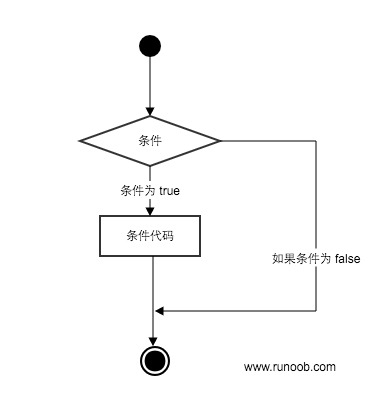今天学习了python的选择判断语句,感觉python的语法太简单了,让我不适应的点是没有大括号,原先大括号的功能用缩进来实现,确实非常超出我的想象。所以在python中缩进非常重要。
今天学习了python的选择判断语句,感觉python的语法太简单了,让我不适应的点是没有大括号,原先大括号的功能用缩进来实现,确实非常超出我的想象。所以在python中缩进非常重要。
Python3 条件控制
Python 条件语句是通过一条或多条语句的执行结果(True 或者 False)来决定执行的代码块。
可以通过下图来简单了解条件语句的执行过程:

代码执行过程:

if 语句
Python中if语句的一般形式如下所示:
if condition_1: statement_block_1 elif condition_2: statement_block_2 else: statement_block_3- 如果 "condition_1" 为 True 将执行 "statement_block_1" 块语句
- 如果 "condition_1" 为False,将判断 "condition_2"
- 如果"condition_2" 为 True 将执行 "statement_block_2" 块语句
- 如果 "condition_2" 为False,将执行"statement_block_3"块语句
Python 中用 elif 代替了 else if,所以if语句的关键字为:if – elif – else。
示例1
score = 70 if score >= 90 and score <= 100: print("本次考试,等级为A") elif score >= 80 and score< 90: print("本次考试,等级为B") elif score >= 60 and score< 80: print("本次考试,等级为C") else: print("本次考试,等级为D")

示例2
xingBie = 0 #1代表男生,0代表女生 danShen = 1 #1代表单身,0代表有男/女朋友 if xingBie == 1: print("男生") if danShen == 1: print("我给你介绍一个吧?") else: print("你给我介绍一个吧?") else: if danShen == 1: print("你看我怎么样?") else: print("一边去吧?")

